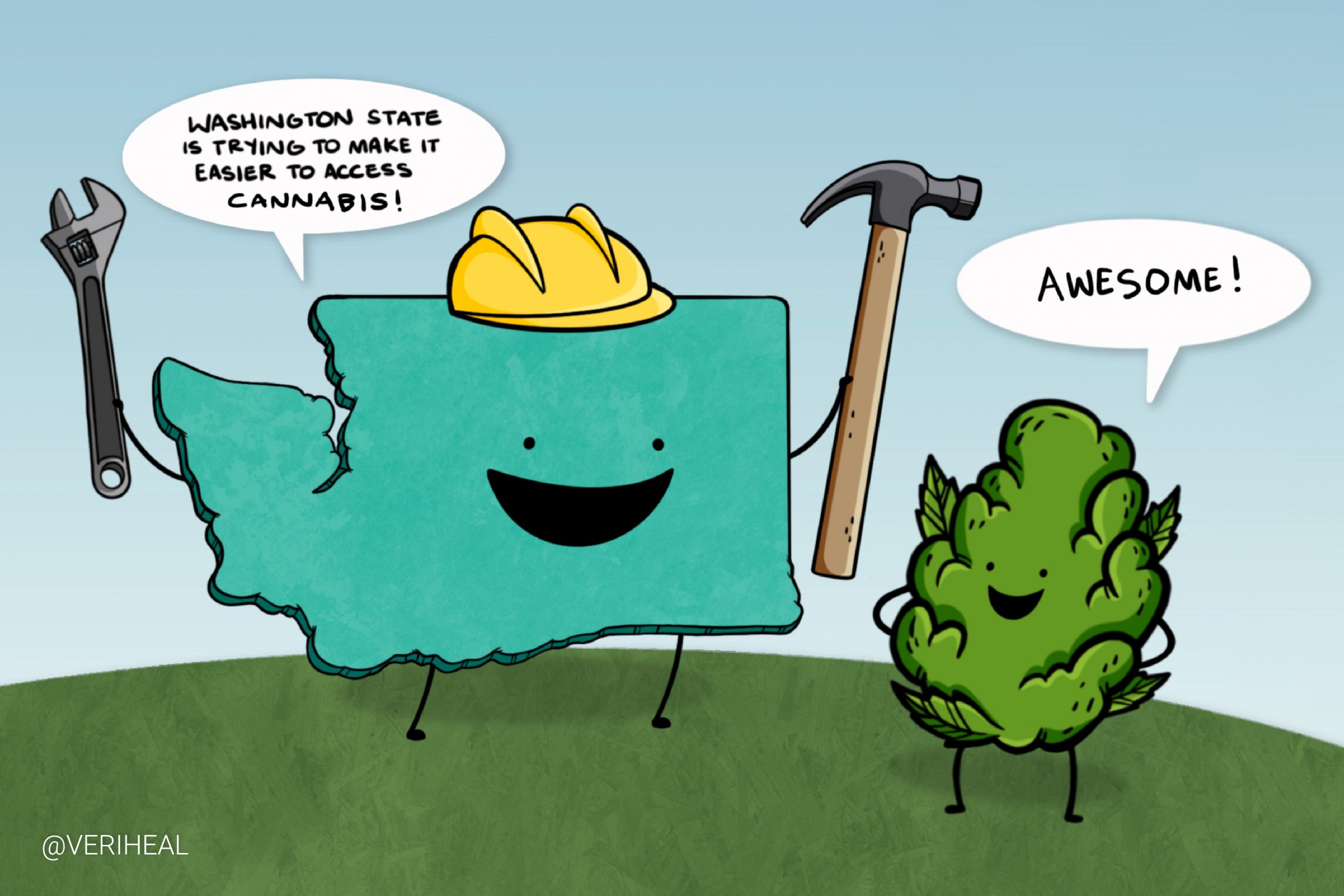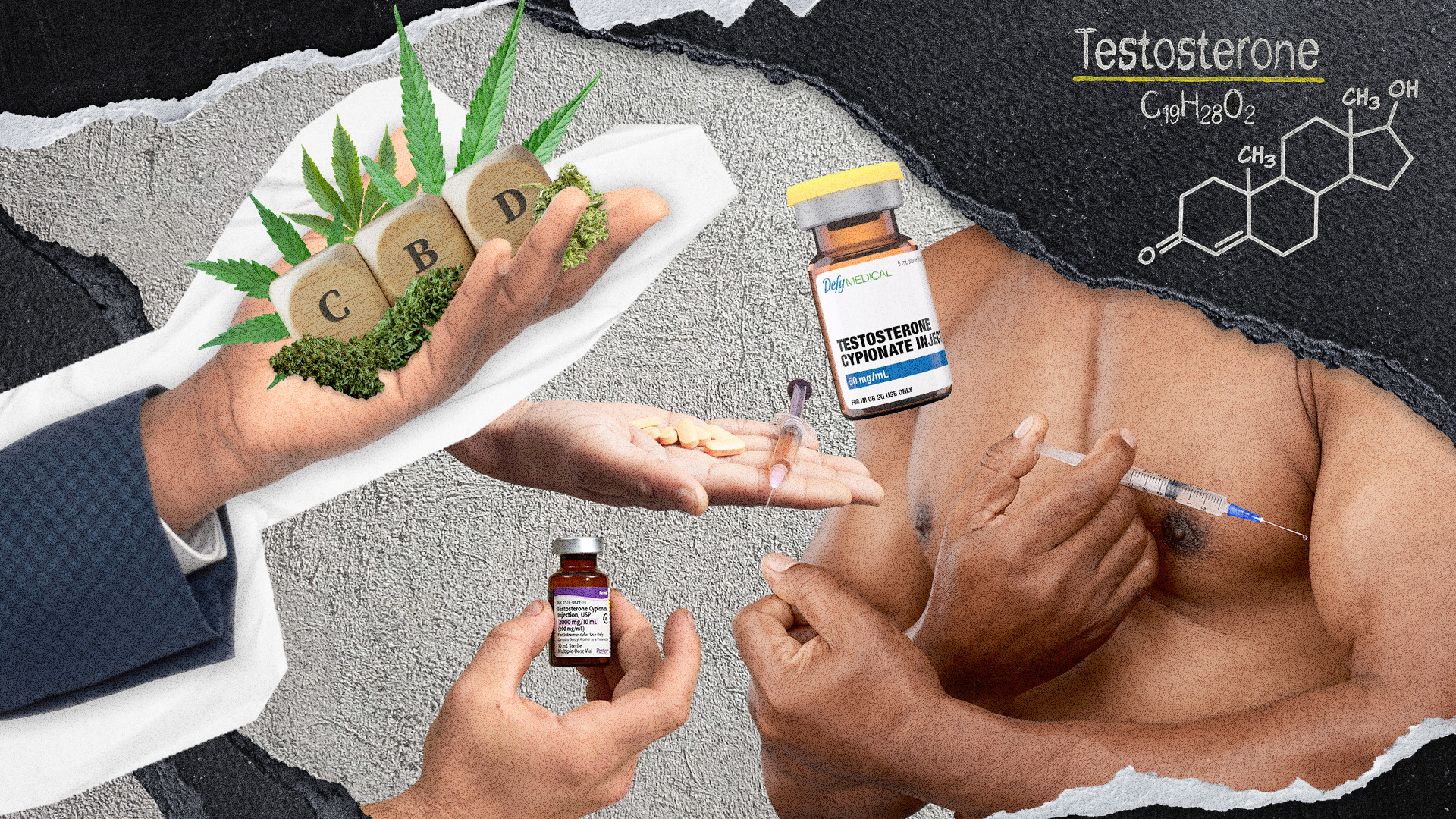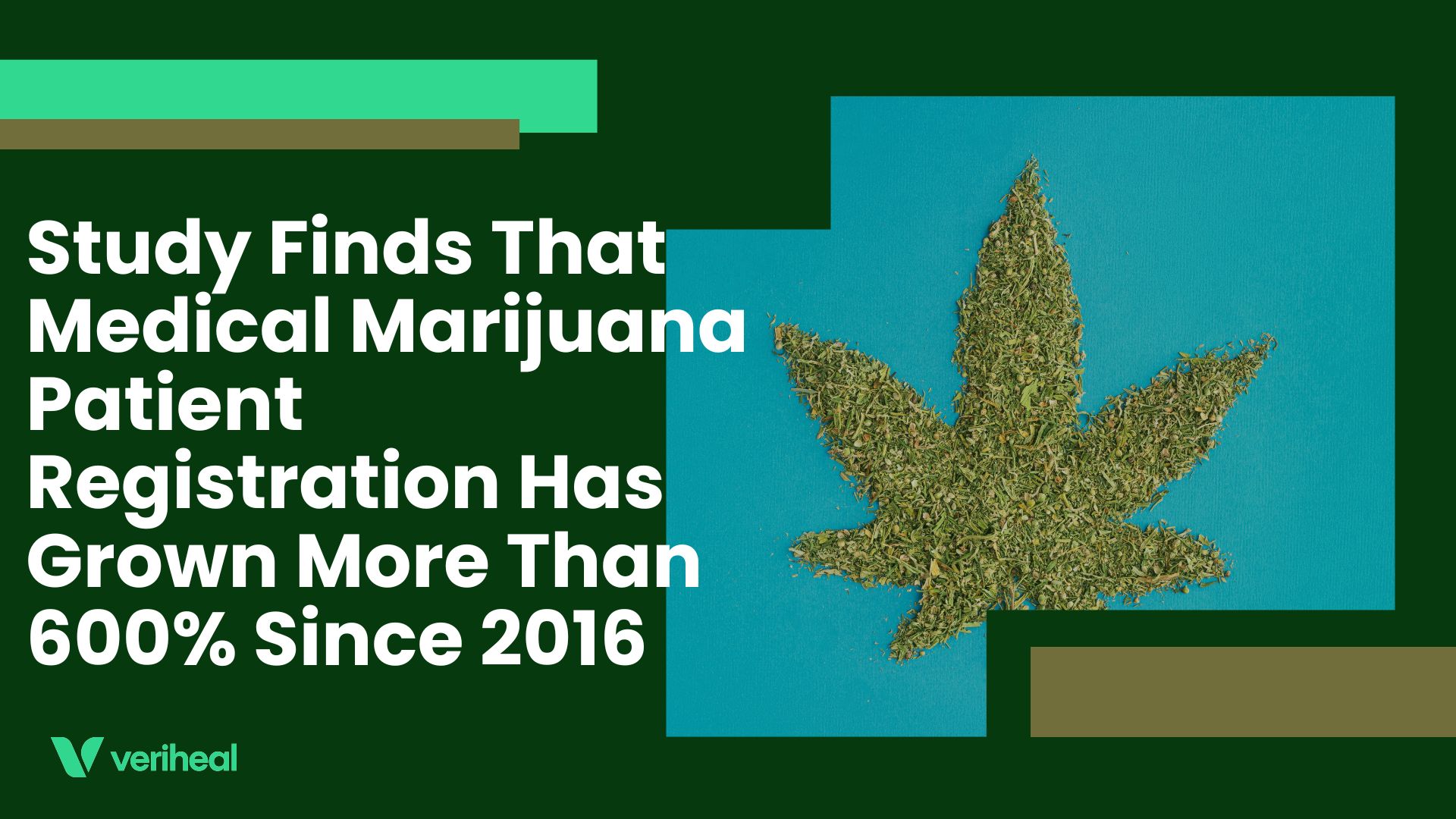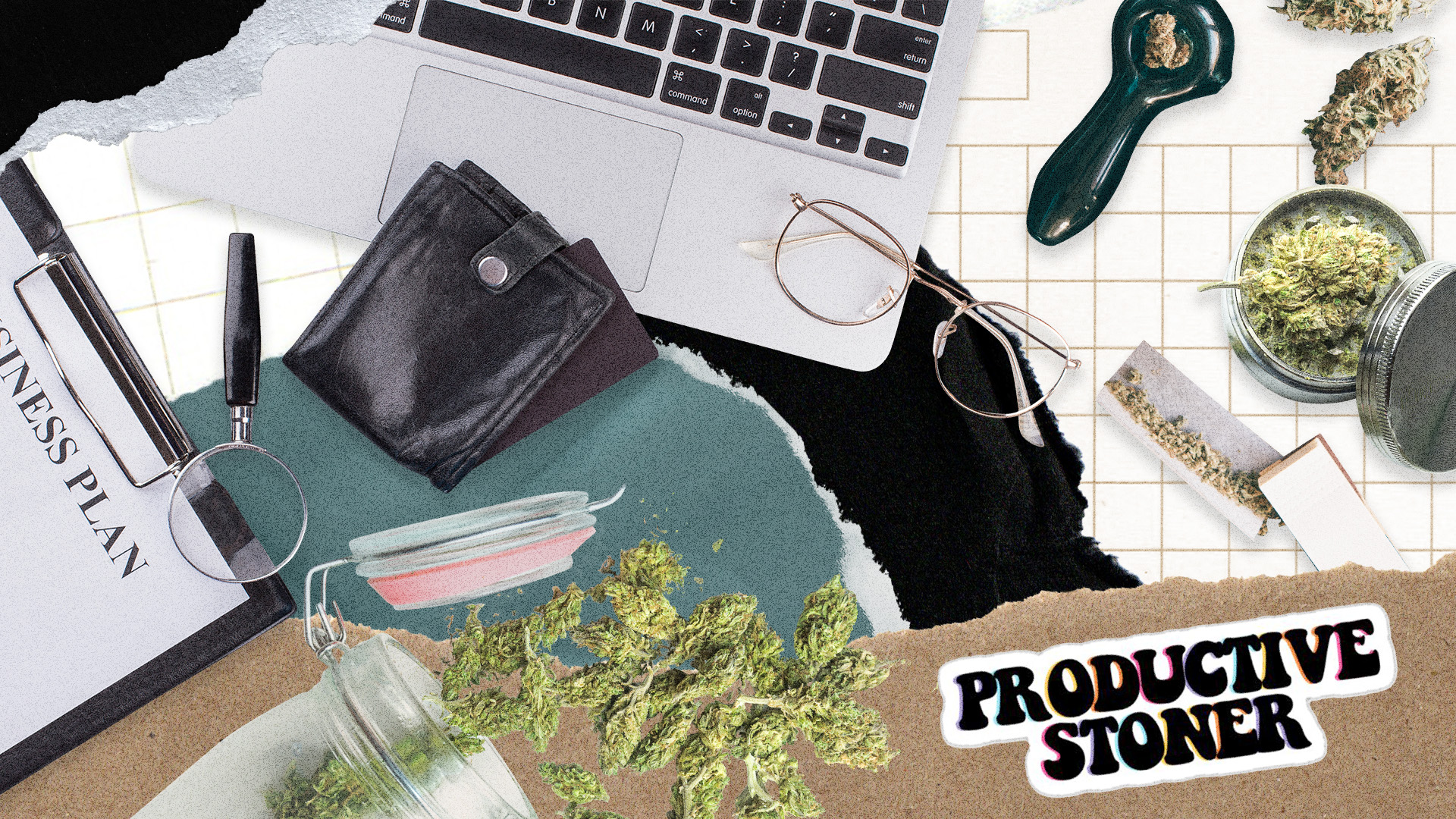Washington state is home to Mount Rainier, the Olympic National Forest, the Space Needle, the famous Pike Place Market, and more. The state’s population has grown by 1.45% since 2019, hitting a total estimated population of 7,656,200 citizens as of April 1st, 2020, according to a government website. The state of Washington followed in the footsteps of Colorado legalizing an adult-use retail cannabis market in 2015. Medical cannabis has been legal in the state of Washington since 1998. The adult-use or retail cannabis market in Washington is considered to be one of the oldest in the country. The 2021 legislative session is set to see some changes to cannabis policy. Activists and organizers are saying they feel optimistic that they will see important changes to the legal cannabis market in Washington state despite challenges presented because of COVID-19.
Currently, in the state of Washington, there is no penalty, incarceration, or fine if you have one ounce or less. If you should happen to get caught consuming any of that in public, however, there is a civil penalty and a maximum fine of $100. Possession of more than an ounce or up to 40 grams is a misdemeanor that can land you 24 hours to 90 days in jail and up to a $1,000 fine. Anything over 40 grams is considered a felony with a $10,000 max fine and five years’ incarceration. Cultivation of any amount of cannabis in the state of Washington without a license is considered a felony punishable by five years in prison and up to a $10,000 fine.
The Key Changes Activists are Pursuing
Activists and organizers supporting a change in Washington’s cannabis policy are hoping to tackle some key issues such as adult-use home cultivation, social equality, medical cannabis excise tax, and establishing a cannabis commission.
Legal Cultivation at Home
When Washington passed their adult-use cannabis law, there were no provisions allowing home grows. HB 1019 introduces recommendations that would allow citizens in the state of Washington the right to cultivate up to six plants in their homes. Allowing individuals to grow cannabis at home presents a cost-effective manner in which citizens can produce quality cannabis at a fraction of the price seen in legal dispensaries. It also helps facilitate knowledge and a deeper understanding of cannabis instead of leaving the responsibility to unknowing budtenders who can only ask if you’re looking for an indica or sativa or just points you to the most potent products available.
A Commission for Cannabis?
Another important issue being addressed this year by the state of Washington is the potential of establishing a cannabis commission. Currently, the Cannabis Alliance is trying to do just that. If this were to be successful, it would give Washington State’s Department of Agriculture responsibility such as the handling of regulating pesticides. It would also show the state of Washington recognizes cannabis farming to be an agricultural activity.
Social Equity
Social equity is another key topic. Currently, the state of Washington is holding social equity task force meetings. Its hope is that 2021 will produce a cleanup bill to fix social inequities. In a statement to the media, Paula Sardinas, the task force co-chair, said,
“The black and #BIPOC community has been waiting for years for equity. A 2021 cleanup bill can address those inequities. Any politician not willing to draft legislation-is not advocating for the people, they are working for their own interest.”
Why You Should Get Your Medical Marijuana Card
Veriheal has satisfied millions of patients nationwide by giving them access to these benefits
- Larger purchase limits
- Peace of mind
- Enhanced legal protection
- Access to higher potency strains
- Save up to 25% on cannabis purchases
- Skip the line at the dispensary
Now there is a powerhouse statement I can agree with. We have too many politicians not advocating for the people and working for their own interests these days.
Excise Taxes from Cannabis
Medical cannabis excise tax is another issue that is set to hit the floor this year. State senators Judy Warnick and Karen Keiser have introduced SB5004 that would overturn tax charged to registered patients if approved. Currently, sales tax in the state of Washington is an astonishing 37% for medical patients. Before we move on, can we just reflect on that statement for a moment? 37% TAX! Where’s the excessive tax on prescription drugs? It’s a vicious cycle that needs to come to an end. A member of Washington State NORML told media in an email,
“As a volunteer organizer for I-502, I know it wasn’t drafted or designed to be the primary option for patients to access medical cannabis. It is a terrible oversight that lawmakers required patients to pay a proverbial syntax for medicine during the flood merging of the medical and recreational markets in 2015. As a consumer, I dislike being taxed for things I want, but being taxed for health needs is completely abhorrent. I support the excise taxes repeal.”– Bailey Hirschberg
Historic Changes on the Horizon in the Pacific Northwest
2021 is setting up to be a historic year for changes in cannabis policy. It also will present many challenges and obstacles for activists and policymakers. COVID-19 has changed the way things operate. In the past, it was easy to stop by a Representative’s office and have a quick chat or catch them in a hallway for a brief conversation. Not anymore.
Crystal Oliver from the Washington Sun Growers Industry Association summed this situation up beautifully in a quote saying, “It changes how and when we interact with representatives and senators. It’s no longer possible to pop into their office for 10 minutes between committee hearings, nor is it possible to have a brief conversation with a representative or senator as they’re walking down the hall. It really changes the dynamic of those ongoing conversations.”
One thing is certain, and that is the state of Washington, along with the rest of the United States, needs to address outdated policies pertaining to cannabis. Why is the cannabis industry suddenly responsible for generating revenue squandered away by decades of political figures misappropriating public funds? That seems like an awful large burden to place on the people because of poor judgment by elected officials. Hopefully, the state of Washington will see success in all of these avenues, and citizens there will regain justice in a country that prides itself on equality and justice for all.
Author, Share & Comments















